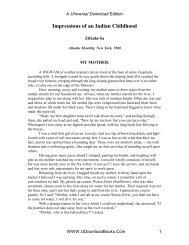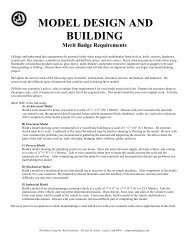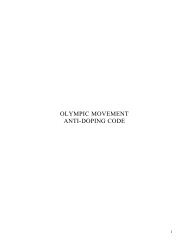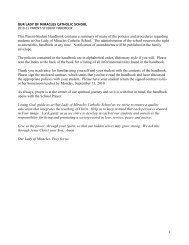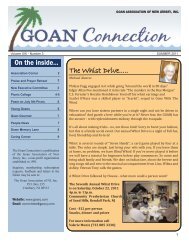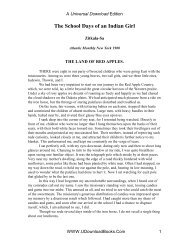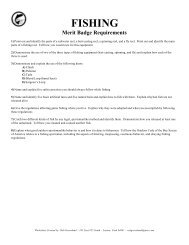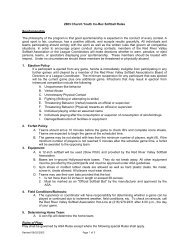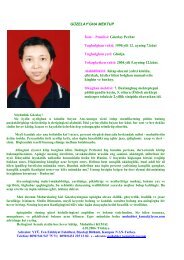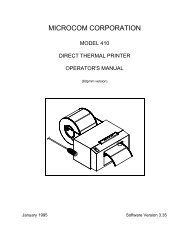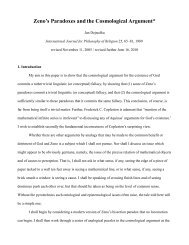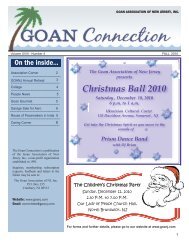Dummett's Backward Road to Frege and to Intuitionism - Tripod
Dummett's Backward Road to Frege and to Intuitionism - Tripod
Dummett's Backward Road to Frege and to Intuitionism - Tripod
You also want an ePaper? Increase the reach of your titles
YUMPU automatically turns print PDFs into web optimized ePapers that Google loves.
even if we could say it, since there would be a Quinean compensa<strong>to</strong>ry adjustment of “color” <strong>and</strong><br />
“shape” as well.<br />
Are not the concepts red <strong>and</strong> round differently principled <strong>and</strong> therefore different mapping<br />
functions? The premise is true but the conclusion does not follow. They are differently principled by<br />
the senses expressed by “red” <strong>and</strong> “round.” More precisely, incomplete senses contain modes of<br />
presentation which are the mapping principles of functions.<br />
Dummett’s program fails even if we provide truth-conditions for all possible sentences of L as<br />
used <strong>to</strong> describe all possible truth conditions. Even if such a procedure were correct in principle, it<br />
would be unworkable in practice. No human can learn that “is red” expresses the sense of a color by<br />
working through all possible sentences of English as used <strong>to</strong> describe all possible truth conditions.<br />
Dummett would be the first <strong>to</strong> tell us that we cannot even work through all actually used sentences of<br />
English, but must be able <strong>to</strong> use only a finite fragment of a language <strong>to</strong> learn senses <strong>and</strong> references. Yet<br />
his view implies just the opposite:<br />
Suppose, then, that we have two sentences which are analytically equivalent, but have<br />
different senses. Since they have different senses, they must, on a view of <strong>Frege</strong>’s kind,<br />
have different truth-conditions. Since they are analytically equivalent, the world cannot<br />
be so constituted that one is true <strong>and</strong> the other false: the set of possible worlds in which<br />
the one is true is the very same set as that of those in which the other is true. How can<br />
there be room for <strong>Frege</strong> <strong>to</strong> distinguish the truth-conditions of the one from those of the<br />
other? (1981: 588)<br />
Here Dummett adduces a nonexistent problem from a strange view of <strong>Frege</strong>’s truth-conditions.<br />
If Dummett thinks that difference in sense implies difference in truth-conditions, then perhaps that is<br />
18




